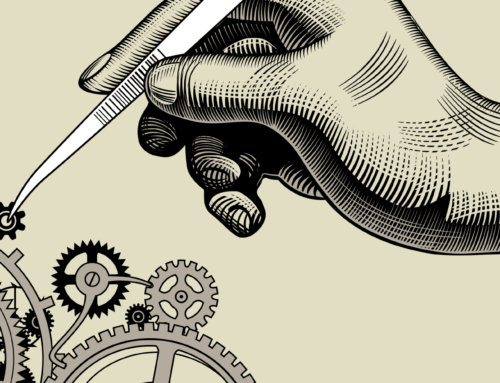How many times have you heard a variation on the phrase “People are your most valuable asset?” How many times have you actually thought about this phrase in the process of hiring candidates? It is easy to hear something that sounds good and nod your head in agreement, it is much harder to internalize those words and understand what they mean and how they relate to your organization. However, many aphorisms, like this one, that are repeated and passed along are there for a reason: they’re true. Really understanding why people are the most valuable part of your organization will help you manage your organization better and manage your hiring process in a different and more effective way.
The Cost of Doing Business
How many objects (computers, phones, printers, etc.) in your office require you to spend $30,000 to keep them operational for a year? How many people vital to your day to day operation have yearly salaries of more than $30,000? What would your reaction be if you came into your office in the morning to find that all of your printers had disappeared? Would it be the same reaction if you came in to find that, say, your network administrator had quit?
These questions are important because they serve to illuminate the disconnect between the purchasing of objects for your organization and the hiring of qualified candidates. If you would be more perplexed at the disappearance of objects than people, then there is a problem. If your reaction to both is that they can be replaced then that is also a very serious problem. Studies show that the loss of a crucial employee can cost the company between 70% and 200% of that employee’s yearly compensation, and hiring qualified replacement candidates on your own is always a gamble.
More Than The Loss of One Person
When you lose a crucial employee, the impact ripples through your company. Any unique knowledge that she has is now gone, as well as any personal relationships she had with clients. Those clients may now be inclined to follow her instead of remaining with you out of personal friendship, or out of a lack of confidence after you’ve lost someone that they trusted. By that same token, fellow employees may now have misgivings about the state of the company and may look elsewhere. Whether she quit or was let go, it instills the idea that there are better options out there both in the minds of clients and other employees.
An Alarming Trend
The U.S. Department of Labor has reported that the average tenure of a U.S. employee at a given company has continued its downward trend, now falling at 1.5 years. Why is this? Here are a few reasons listed by Forbes as factors in employee turnover:
- Employees do not feel connected to the mission of the company.
- Management bullies, intimidates, or otherwise ostracizes employees.
- Lack of career advancement
- Modern employees want something other than the “traditional” 9-5, stuck at the same desk all day job.
- Lack of empathy in corporate culture–people want to be seen as people, not just employees.
Does this mean that employees are more flippant now, and that employers will forever be stuck in a cycle of hiring disinterested candidates one right after another? Not at all. This reflects the changing nature of work, and speaks to the areas in which modern companies must improve if they want to keep their most valuable asset from having to be replaced every 18 months.
Seeing People As People
More than anything, studies suggest that the most meaningful thing to modern employees is being valued and finding more than just a paycheck at their place of employment. Employees want to be working for something bigger, and they want to be acknowledged for the contributions to these shared goals. If an employee does not feel valued than how can they be expected to turn down an offer from your competition?
The two best ways to show appreciation? Compensation and empathy– and they must be done together. If you pay someone well, but do not care about their inner work life, they will not feel a deep connection with the mission of the organization. Concurrently, if you exhibit incredible empathy but offer sub-par compensation, employees will be forced to explore other options, even if they do truly believe in the company.
Start At The Beginning
Even if you have done everything right, you might still be seeing high turnover. This comes down to hiring the right candidates, hiring candidates who believe in the mission and vision that you have built your company around. This is where the intersection of employees as monetary assets and employees as people comes in. It is absolutely critical during the hiring process to connect with candidates who are at once qualified for the position, and will also find your organization to be one that they want to be a part of to grow personally and professionally, and consequently are independently motivated to do all they can to help your organization grow as well.
If these considerations are addressed at the beginning it prevents a loss on your investment and having to go through the hiring process again, and if you have not internalized by then how very valuable your human assets are you may end up making the same mistake once more.
We live in an age of options, both for job seekers and for employers. With this broad range of choice comes the ability to find the perfect people for whatever vision you have. Building an organization that shows how much it values its people is the first step. The second is to focus your hiring process on finding the candidates that will find personal satisfaction in your organizations specific vision. If you can do this, your investments in people will pay incredible dividends to you as you and your employees grow both as a business entity and as a team of people working for a common goal.
Consider Working With Recruiting Experts
The Griffin Groupe can help you develop your hiring strategy and reach your staffing goals while keeping your company’s culture in mind. We work with a vast network of independent recruiting experts around the United States. Don’t go alone, trust The Griffin Groupe’s guaranteed hiring solutions. Get in touch for a free consultation today at 855-WE-STAFF or place a 3-minute job order.







Leave A Comment